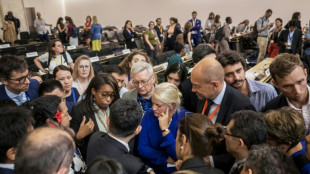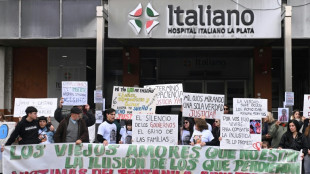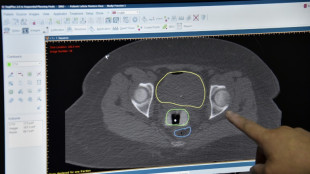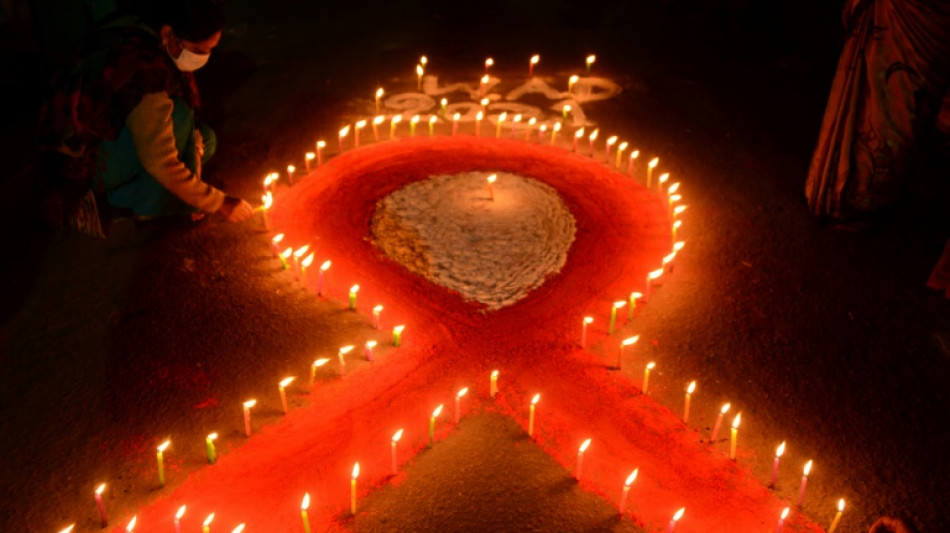
-
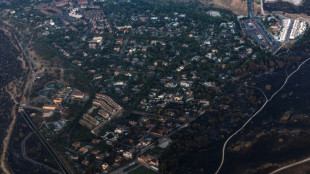 Spain PM vows 'climate pact' on visit to fire-hit region
Spain PM vows 'climate pact' on visit to fire-hit region
-
Serbia's president vows 'strong response' after days of unrest
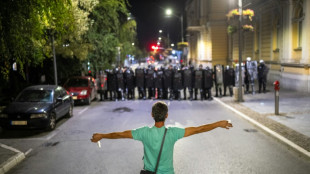
-
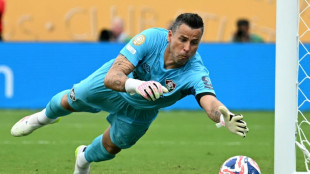 Brazilian goalkeeper Fabio equals Shilton record for most games played
Brazilian goalkeeper Fabio equals Shilton record for most games played
-
Warholm in confident swagger towards Tokyo worlds
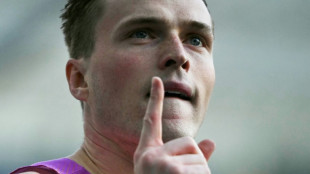
-
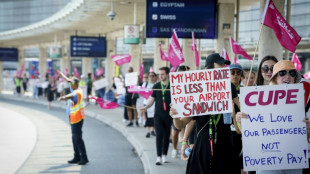 Air Canada to resume flights after govt directive ends strike
Air Canada to resume flights after govt directive ends strike
-
Israelis rally nationwide calling for end to Gaza war, hostage deal
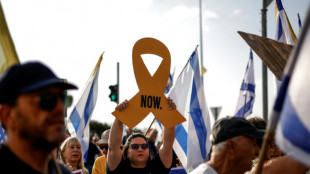
-
 European leaders to join Zelensky for Ukraine talks with Trump
European leaders to join Zelensky for Ukraine talks with Trump
-
Downgraded Hurricane Erin lashes Caribbean with rain
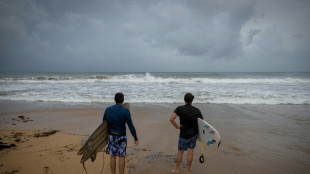
-
 Protests held across Israel calling for end to Gaza war, hostage deal
Protests held across Israel calling for end to Gaza war, hostage deal
-
Hopes for survivors wane as landslides, flooding bury Pakistan villages
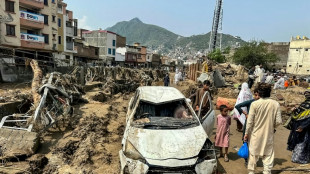
-
 After deadly protests, Kenya's Ruto seeks football distraction
After deadly protests, Kenya's Ruto seeks football distraction
-
Bolivian right eyes return in elections marked by economic crisis
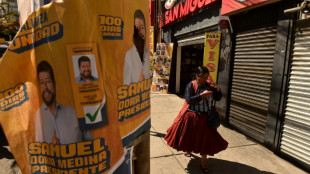
-
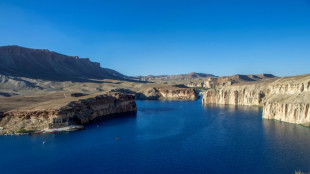 Drought, dams and diplomacy: Afghanistan's water crisis goes regional
Drought, dams and diplomacy: Afghanistan's water crisis goes regional
-
'Pickypockets!' vigilante pairs with social media on London streets
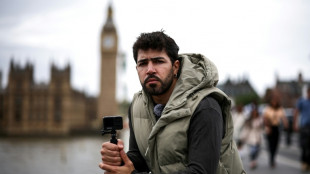
-
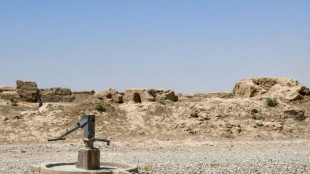 From drought to floods, water extremes drive displacement in Afghanistan
From drought to floods, water extremes drive displacement in Afghanistan
-
Air Canada flights grounded as government intervenes in strike
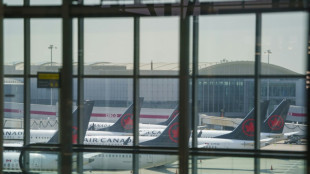
-
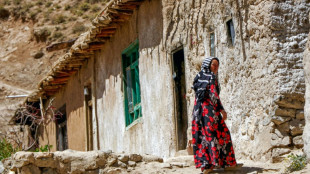 Women bear brunt of Afghanistan's water scarcity
Women bear brunt of Afghanistan's water scarcity
-
Reserve Messi scores in Miami win while Son gets first MLS win

-
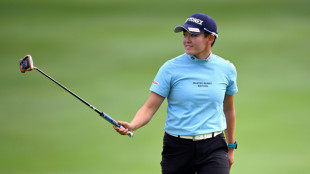 Japan's Iwai grabs lead at LPGA Portland Classic
Japan's Iwai grabs lead at LPGA Portland Classic
-
Trump gives Putin 'peace letter' from wife Melania

-
 Alcaraz to face defending champ Sinner in Cincinnati ATP final
Alcaraz to face defending champ Sinner in Cincinnati ATP final
-
Former pro-democracy Hong Kong lawmaker granted asylum in Australia
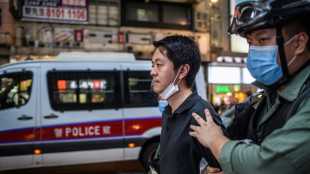
-
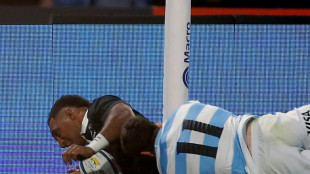 All Blacks beat Argentina 41-24 to reclaim top world rank
All Blacks beat Argentina 41-24 to reclaim top world rank
-
Monster birdie gives heckled MacIntyre four-stroke BMW lead
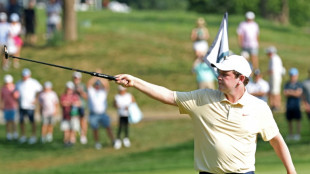
-
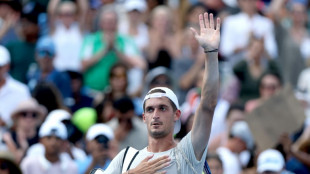 Coffee-lover Atmane felt the buzz from Cincinnati breakthrough
Coffee-lover Atmane felt the buzz from Cincinnati breakthrough
-
Coffe-lover Atmane felt the buzz from Cincinnati breakthrough
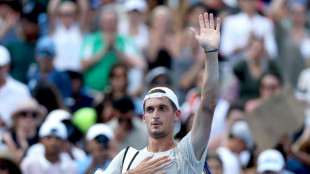
-
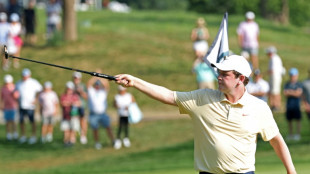 Monster birdie gives MacIntyre four-stroke BMW lead
Monster birdie gives MacIntyre four-stroke BMW lead
-
Hurricane Erin intensifies offshore, lashes Caribbean with rain
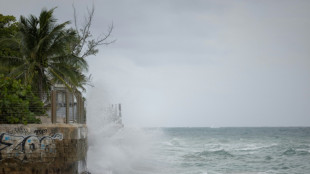
-
 Kane lauds Diaz's 'perfect start' at Bayern
Kane lauds Diaz's 'perfect start' at Bayern
-
Clashes erupt in several Serbian cities in fifth night of unrest
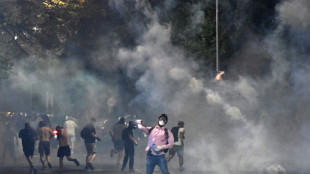
-
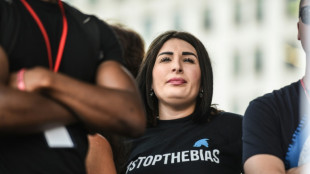 US suspends visas for Gazans after far-right influencer posts
US suspends visas for Gazans after far-right influencer posts
-
Defending champ Sinner subdues Atmane to reach Cincinnati ATP final
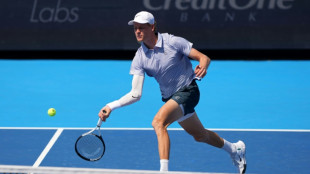
-
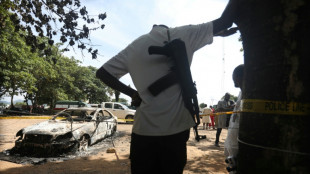 Nigeria arrests leaders of terror group accused of 2022 jailbreak
Nigeria arrests leaders of terror group accused of 2022 jailbreak
-
Kane and Diaz strike as Bayern beat Stuttgart in German Super Cup
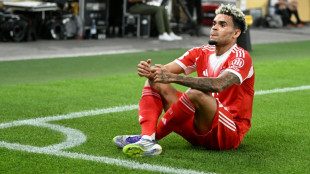
-
 Australia coach Schmidt hails 'great bunch of young men'
Australia coach Schmidt hails 'great bunch of young men'
-
Brentford splash club-record fee on Ouattara

-
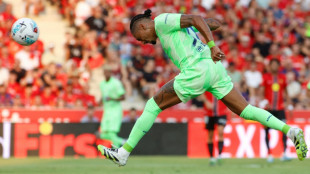 Barcelona open Liga title defence strolling past nine-man Mallorca
Barcelona open Liga title defence strolling past nine-man Mallorca
-
Pogba watches as Monaco start Ligue 1 season with a win

-
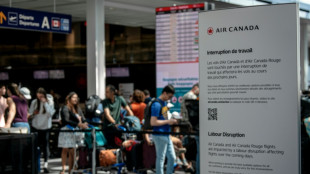 Canada moves to halt strike as hundreds of flights grounded
Canada moves to halt strike as hundreds of flights grounded
-
Forest seal swoop for Ipswich's Hutchinson

-
 Haaland fires Man City to opening win at Wolves
Haaland fires Man City to opening win at Wolves
-
Brazil's Bolsonaro leaves house arrest for medical exams
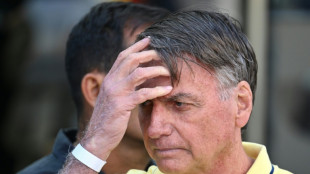
-
 Mikautadze gets Lyon off to winning start in Ligue 1 at Lens
Mikautadze gets Lyon off to winning start in Ligue 1 at Lens
-
Fires keep burning in western Spain as army is deployed
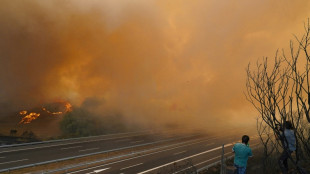
-
 Captain Wilson scores twice as Australia stun South Africa
Captain Wilson scores twice as Australia stun South Africa
-
Thompson eclipses Lyles and Hodgkinson makes stellar comeback
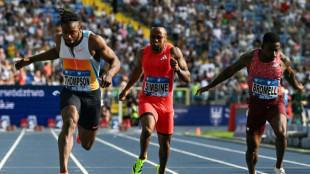
-
 Spurs get Frank off to flier, Sunderland win on Premier League return
Spurs get Frank off to flier, Sunderland win on Premier League return
-
Europeans try to stay on the board after Ukraine summit
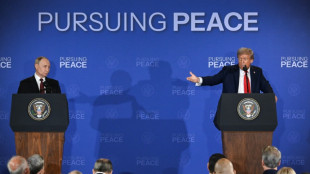
-
 Richarlison stars as Spurs boss Frank seals first win
Richarlison stars as Spurs boss Frank seals first win
-
Hurricane Erin intensifies to 'catastrophic' category 5 storm in Caribbean
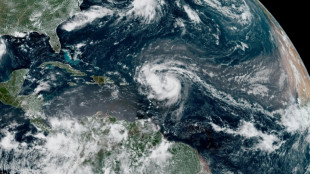

'Lucky to still be alive': Living with HIV for over 30 years
When people were diagnosed with HIV more than three decades ago, it was considered a death sentence.
But after suffering through discrimination, the loss of loved ones and brutal side effects from drugs, advances in treatment over the years have allowed millions to live with the virus.
To mark the 40th anniversary of the discovery of the virus that causes AIDS, AFP spoke to four long-term survivors about their experience.
- 'Stigma' remains -
Paul Kidd, a 59-year-old activist and lawyer who lives north of the Australian city of Melbourne, said he was first diagnosed with HIV in 1991 but had probably already had it for several years.
Although he asked for a test in 1986, he said his doctor advised against it because "at that time there were no treatments and the political climate was very bad for people with HIV, with open calls for us to be quarantined, criminalised or otherwise mistreated".
"My diagnosis was hard to accept but not really a surprise, as an ex-partner of mine had died of AIDS in 1988," he said.
"Many people I knew and loved died."
After his diagnosis, Kidd started on an antiretroviral drug called AZT, which he said "made me very sick" but which he credits with saving his life.
Now he takes just one daily pill with no side effects.
"One thing that hasn't changed much is HIV stigma," he said, particularly in some regions.
"Uganda and Ghana are going in a terrible direction, and people with HIV in Russia and Eastern Europe have a much harder life than I ever did," he said.
"I know I am lucky to still be alive and the volunteer work I do is my way of honouring the memory of those who aren't with us any more."
- 'A little miracle' -
Pascale Lassus, a 62-year-old retiree in the southwestern French city of Bayonne, said she unknowingly contracted HIV in 1984 from her then boyfriend.
She did not find out until a decade later, when she was tested after falling ill with bronchitis.
"I was stunned," she said.
"I had been living normally until then and my immune system went haywire."
Then her six-year-old daughter tested positive.
"The doctor told me she wouldn't make it through adolescence. I was totally devastated."
The only treatment available was AZT, which had "horrific" side effects, she said.
"I had to wake my daughter up at night because it had to be taken every four hours."
But a new three-drug regimen in 1995 changed things.
"Today, my daughter is 35 years old," she said.
"She was able to have a child who is HIV-negative -- a little miracle."
- 'An asterisk at best' -
Grissel Granados, a 36-year-old deputy director of a women-focused non-profit organisation, has had HIV all her life.
When she was born in Mexico in 1986, her mother required an emergency Caesarean section, contracting HIV during a blood transfusion.
Her mother then "unknowingly breastfed me and that's how I acquired HIV", said Granados, who now lives in Los Angeles.
It wasn't until five years later, "when my dad started getting sick" that the family learned it had HIV, she said.
Her father died shortly after being diagnosed. Her mother was pregnant at the time but was advised not to breastfeed.
"So my sister, thankfully, is HIV-negative," Granados said.
Despite getting cancer at the age of 10, Granados said she "has had a very healthy life".
But she feels that people who have had HIV since birth are too often forgotten or ignored.
"We're an asterisk at best. For the most part, we are not represented in the history of long HIV," she said.
- 'Discriminated against' -
Joel Vermont, a 58-year-old living in the eastern suburbs of Paris, found out he had HIV in 1992.
"I was 27. It felt like being hit by a falling building," he said.
When he started on AZT, the "abominable" side effects led to him losing nearly 30 kilograms (65 pounds).
Then the new three-drug regimen "didn't work on me".
"I switched to alcohol," he said.
"My viral load exploded. I developed lung disease and early-onset cancer.
"I ended up in hospital, where I was in a coma for 45 days. When I woke up, I couldn't walk and I was paralysed in one arm."
After being "discriminated against" at work, he spent eight years on sick leave before winning a court case.
"For years, I heard I was going to die. Then all of a sudden I was told that I had to live," he said.
"I needed psychological support to accept that."
M.Furrer--BTB


